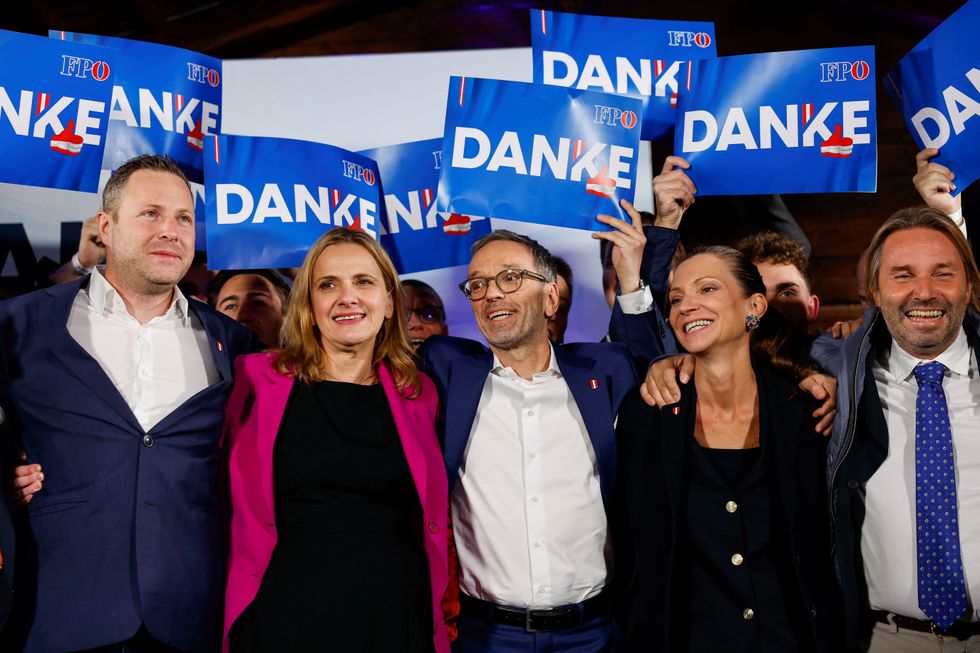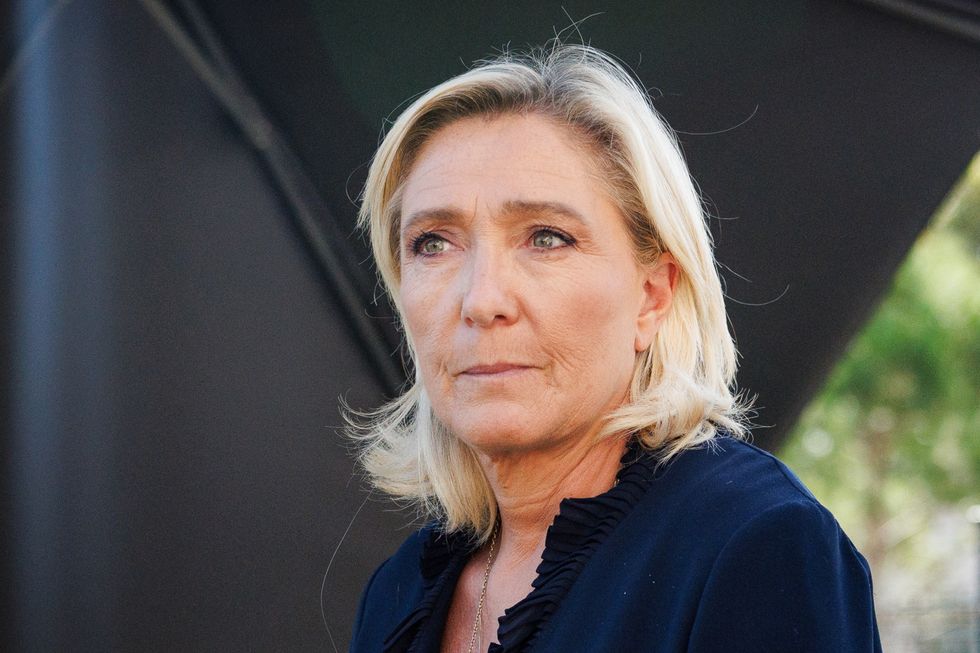The Freedom Party, led by the controversial Herbet Kickl, secured its first right-wing national parliamentary election victory in Austria since the Second World War.
The party finished first ahead of the ruling conservatives with the centre-left Social Democrats in third place, however, the party’s chances of actually governing are unclear.
Preliminary official results show the Freedom Party finishing with 29.2 per cent of the vote, Chancellor Karl Nehammer’s Austrian People’s Party second with 26.5 per cent and the Social Democrats with 21 per cent.
The outgoing government, a coalition of Nehammer’s party and the Greens, lost its majority in the lower house of parliament.
In reaction, GB News contributor Matt Goodwin said: “National populism will only get stronger & stronger until the elite class listen and respond to voters.”

Preliminary official results show the Freedom Party finishing with 29.2 per cent of the vote
Reuters
However, to become Austria’s new leader, Kickl would need a coalition partner, and rivals have said they will not work with him in government.
He has previously drawn criticism for his use of the term “Volkskanzler,” or chancellor of the people, which was used by Nazis to describe Adolf Hitler in the 1930s.
In their election campaign, the party tapped into anxieties around immigration, inflation, COVID, and the war in Ukraine.
The party also wants to end sanctions against Russia, is highly critical of Western military aid to Ukraine and wants to leave the European Sky Shield Initiative – a missile defence project launched by Germany.
The results round off 12 months of elections in which illiberal parties have won most seats in parliaments across Europe.
In 2023, populist Robert Fico topped the ballot in Slovakia and formed a government soon after.
Only two months later, the Freedom Party (PVV) of Geert Wilders finished first in the Dutch elections, eventually assembling a cabinet which promised the country’s toughest-ever policies on immigration and law and order.
This May, Marine Le Pen’s right-wing National Rally (RN) achieved its best-ever result in the European parliament election in France in a humiliating defeat on President Emmanuel Macron’s centrist forces prompting him to dissolve parliament.
The RN went on to record its highest-ever score in the first round of votes, and in the second it took an even higher share of the vote winding up as the largest single party in the assembly.
This month, the Alternative für Deutschland (AfD) in Germany also secured a historic victory in regional elections in Thuringia.
 Marine Le Pen saw her party storm to victory in the European electionsGetty
Marine Le Pen saw her party storm to victory in the European electionsGetty
LATEST FROM MEMBERSHIP:
This is the first time a far-right party has topped a state ballot, and they finished a close second in Saxony and Brandenburg.
The right-wing spread across Europe could continue as the nation-first, populist ANO party of the former minister Andrej Babiš is predicted to sweep parliamentary elections due in the Czech Republic by October.
This was after topping the EU ballot and this month dominating regional and senate votes.
By next September, the AfD, who are polling ahead of all three parties in Chancellor Olaf Scholz’s coalition and only trailing the opposition centre-right Christian Democrats, will be aiming high at the federal election in Germany.